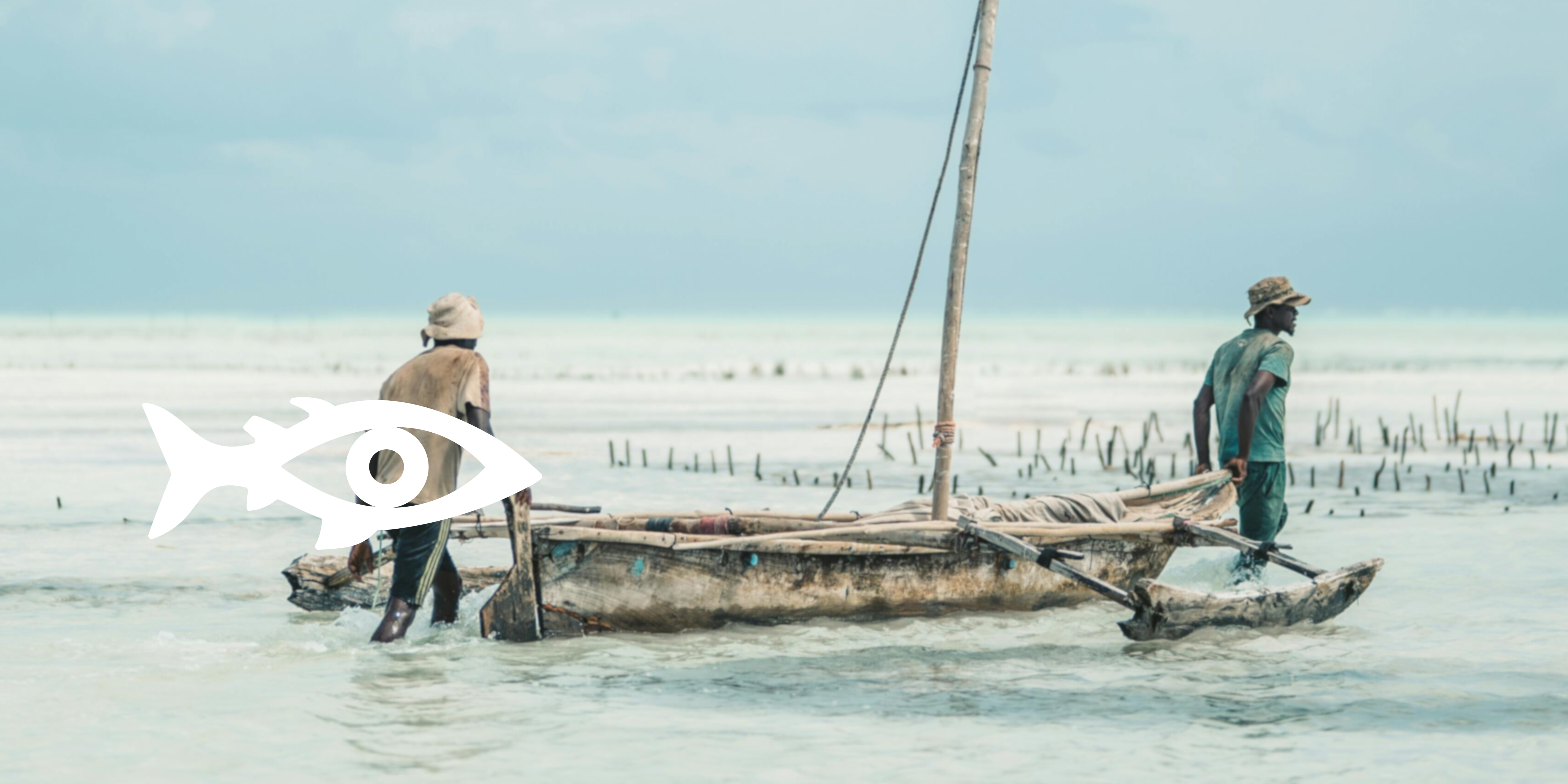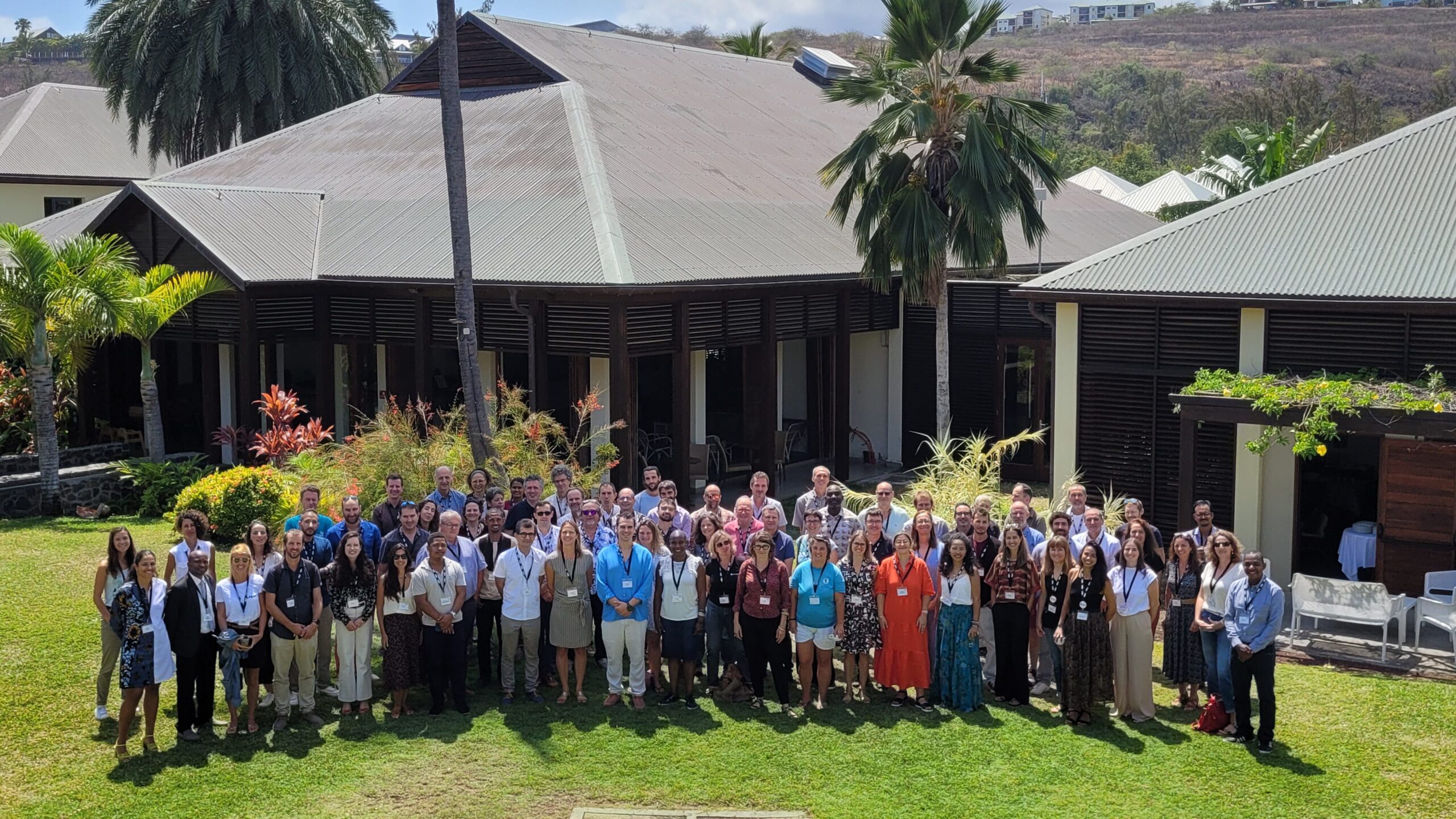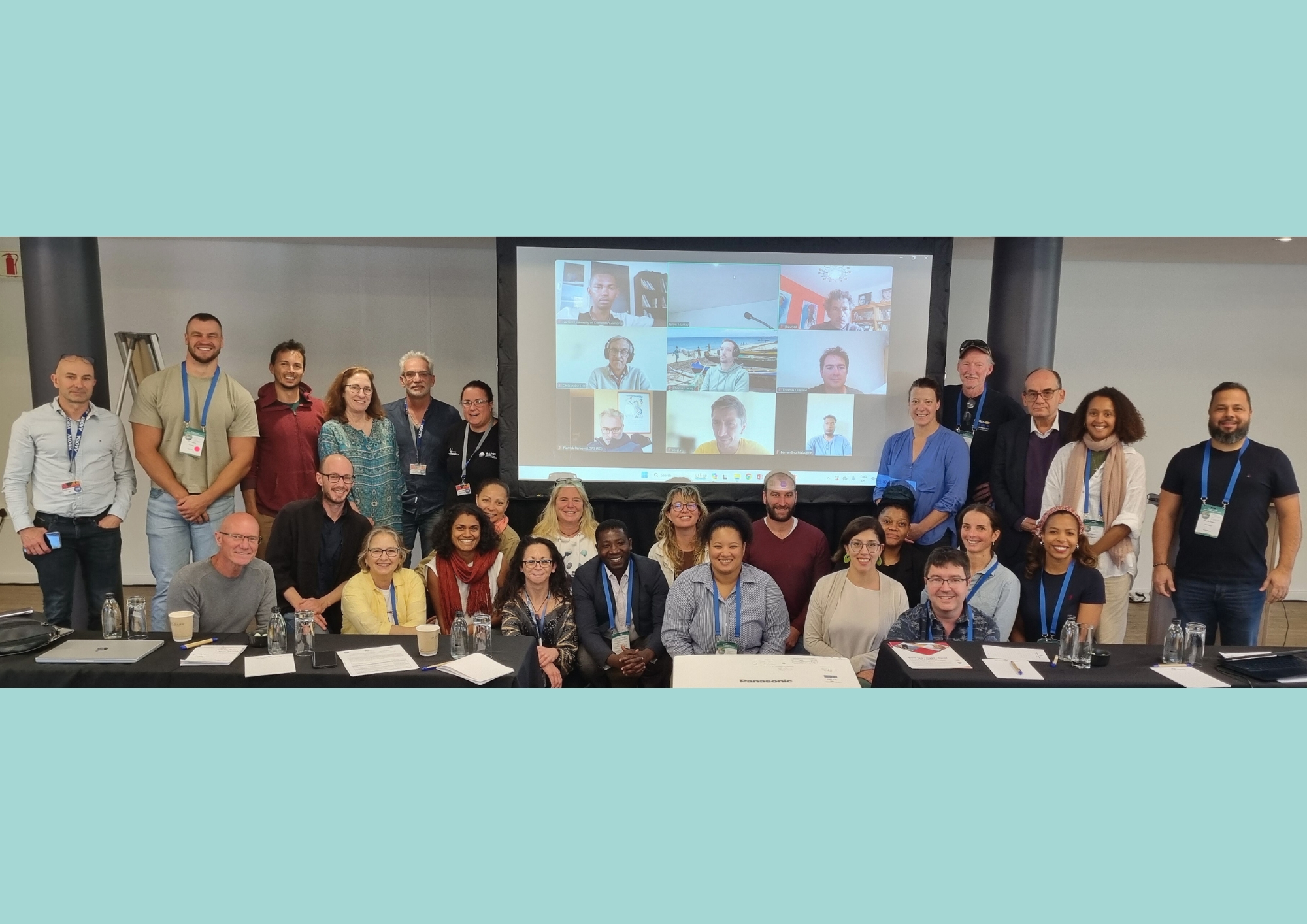
Workshop on marine ecological connectivity in the South-West Indian Ocean :
SIOMPA X BRIDGES
On Saturday October 19 in Cape Town, a workshop on marine ecological connectivity was held in conjunction with IMCC7. Funded by the CNRS and co-organized with Rodolphe Devillers and Taryn Murray, the workshop brought together some forty participants to discuss the importance of marine ecological connectivity in the south-west Indian Ocean and its role in the effective conservation of marine ecosystems.
The morning was dedicated to presenting a synthesis of knowledge on ecological connectivity in the Mozambique Channel, with thematic presentations on physical oceanography, larval dispersal, species tracking by acoustics, genetic connectivity and the integration of connectivity into conservation area planning. The afternoon was devoted to the presentation of the 4 winning SIOMPA projects, as well as the NoCaMo project led by WWF. The day ended with exchanges on synergies between projects, mainly around data sharing and the pooling of resources and infrastructures.
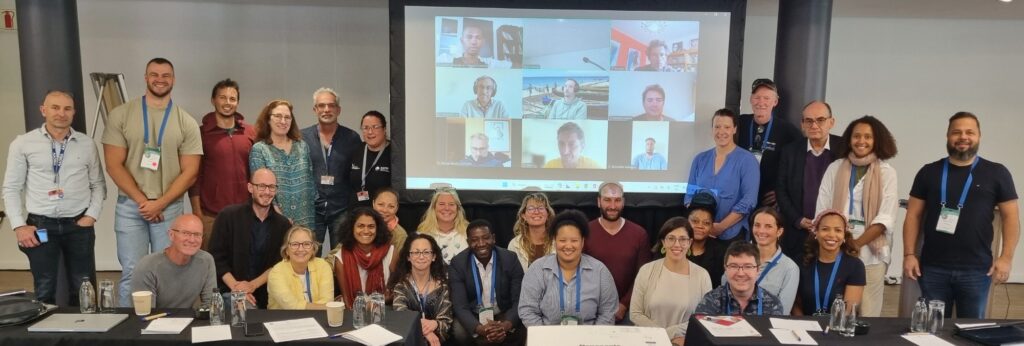
Studying marine connectivity to promote conservation measures at a regional scale
The southwest Indian Ocean is a hotspot of endemism and biodiversity. To better conserve this biodiversity, it is important to understand the distribution, movements and interactions between different species and their environment, to inform effective conservation strategies. The study of connectivity also enables us to better understand the role of Marine Protected Areas (MPAs) and the impact of their potential networking.
Last September, 4 projects won the call:
- COEXISTENCE – From conflict to coexistence: understanding the socio-ecological mechanisms of fisheries -large marine predators’ conflicts in the Mozambique Channel to identify sustainable solutions
Main objectives:- Reduce conflicts between large predators and fisheries (bycatch, depredation, targeted fishing) with a regional approach.
- Co-construct public policy recommendations to mitigate these conflicts.
Species studied: False killer whale, killer whale, tiger shark, bull shark, short-finned pilot whale, scalloped hammerhead shark
Coordinator : Paul Tixier (IRD)
- MECOWIO – Bottom-up Multi-Ecosystem COnnectivity in and around the Mozambique Channel: From physics and biogeochemistry to top predators connecting MPAs of the WIO region
Species studied: Whale sharks, manta rays, turtles, endemic coral species, sponges and fish.
Coordinator : Tamaryn Morris (SAIAB)
- MERMOZ – Marine Ecological connectivity and conseRvation in the MOZambique channel
Main objectives: To improve our understanding of spatio-temporal ecological connectivity patterns, in particular :- At different life stages of vulnerable or emblematic species
- Their likely evolution with climate change
- To inform regional conservation policies
Species studied: honeycombgrouper, giant trevally, green turtle, hawksbill sea turtle, sooty tern, black-saddled coral grouper,
Partners : IRD, CNRS, Ifremer, University of Réunion, University of Mayotte, Kélonia, Ecole pratique des Hautes Etudes, CEDTM, Mayotte Nature Marine Park, Espace-Dev, MIO, Marbec, Paloc, Entropie, CEFE, TAAF, SAIAB, Department of Forestry, Fisheries and the Environment of South Africa, University of Pretoria, Fire Island Conservation, University of the Comoros, Comoros National Parks, Mohéli National Park, CORDIO, Observatoire du milieu rural du Mozambique, Centro Terra Viva, Institut National d’Océanographie du Mozambique (InOM), WIOMSA, WIOMPAN, IUCN, Great Blue Wall, Macquarie University.
Coordinator : Rodolphe Devillers (IRD)
- MESCAL – Multiscale connectivity at species and community levels to achieve conservation goals under climate change in the Western Indian Ocean
Main objectives: To understand whether current and future MPAs can :- Simultaneously protect intraspecific diversity (genotypes and phenotypes) and community diversity
- Contribute to the sustainability and resilience of marine ecosystems in the face of climate change.
Species studied: 3 important fish species for small-scale fisheries: Blubberlip snapper (Maori snapper), Dory snapper (gibelot snapper), Blacktail (Diplodus capensis).
Coordinator : Thomas Lamy (IRD)
Complementarities and future collaborations with BRIDGES
Through collaborative research and a holistic approach, BRIDGES studies the impacts of global changes on biodiversity and human societies dependent on small-scale fishing in the south-west Indian Ocean, with a strong interest in Marine Protected Areas. Avenues for collaboration with SIOMPA are already being explored:
- Oceanographic modeling
- Integration of SIOMPA data into the BRIDGES database
- Building participatory approaches.
A joint BRIDGES-SIOMPA summer school is also being considered for 2026.
Contacts :
Rodolphe Devillers, IRD, UMR ESPACE-DEV rodolphe.devillers@ird.fr
Taryn Murray, SAIAB, Afrique du Sud TS.Murray@saiab.nrf.ac.za
Further information: https://www.ird.fr/conservation-en-zone-critique-le-projet-mermoz-devoilera-lavenir-des-ecosystemes-marins-dans-le
SIOMPA: This call is coordinated by the Agence Nationale de la Recherche (ANR) and supported by the National Research Foundation (NRF) of South Africa, the Agence Française pour le Développement (AFD), the Fundo Nacional de Investigação (FNI) of Mozambique, the National Research Fund (NRF) of Kenya, and the Tanzania Commission for Science and Technology (COSTECH). Each national funding agency supports its country’s teams. AFD also offers funding opportunities to teams in the Comoros, Madagascar and Mauritius.
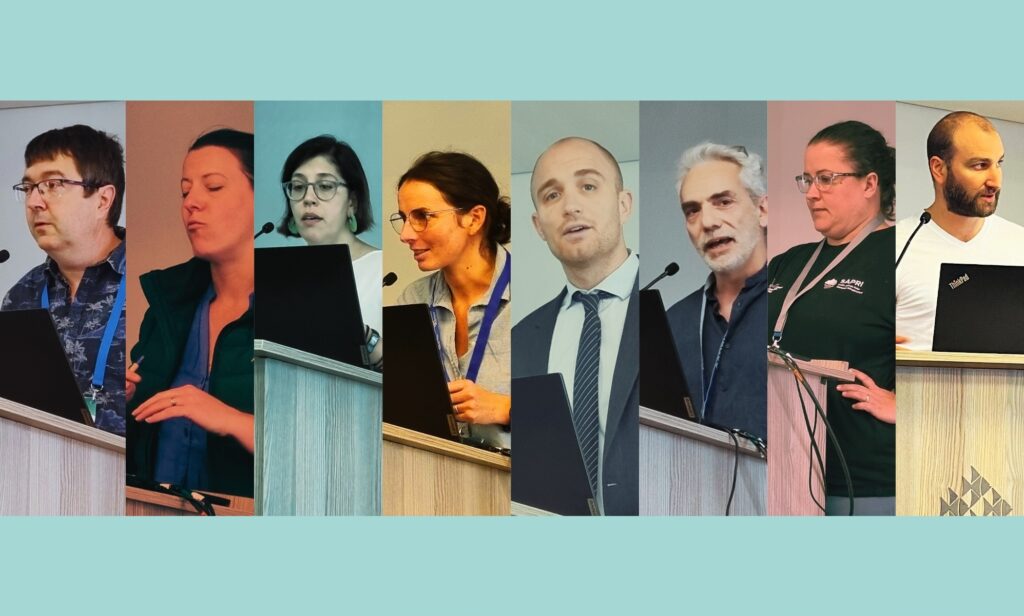
photo : Rodolphe Devillers (IRD), Taryn Murray (SAIAB), Romina Henriques (U Pretoria), Stéphanie D’Agata (IRD), Corentin Ducroquet (French Embassy), Olivier Bousquet (Expertise France), Tamaryn Morris (SAEON), Quentin Schull (Ifremer)
More news Events

